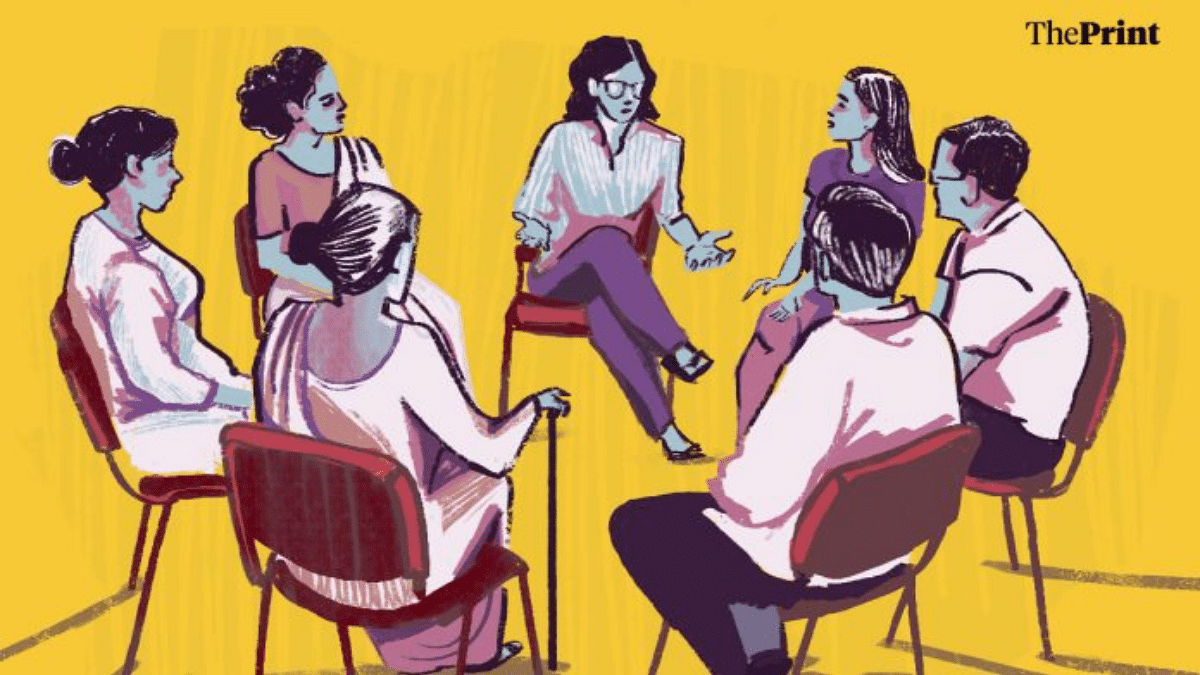Research shows that common mental disorders can often be handled well through self-care, community support, and primary healthcare. India has found encouraging success in models where trained locals called “lay counsellors” provide mental healthcare at the village level. These programmes have shown promise in reducing mental distress. While severe cases need specialized attention in clinics or hospitals, there are fewer of these cases. Yet, India has mainly relied on hospitals due to old laws and stigma around mental health.
However, recent laws, like the Mental Healthcare Act of 2017, aim to change this by bringing care closer to communities. The Indian government should reconsider its strategy and allocate more funds towards community care rather than be singularly focussed on hospitals. Community mental health models have shown promise in delivering care at the village level and present a low-cost, high-return opportunity for donors as CAPI’s report points out.
By empowering grassroots organizations, amplifying the voices of marginalized communities within mental health discussions, and implementing context-specific strategies, funders are ensuring targeted interventions that resonate with the unique cultural and socioeconomic landscapes they serve.
An example of this approach is the rural community mental health programme undertaken by The Live Love Laugh Foundation in a remote village in the Koraput district of India’s Odisha state. Beneficiaries of the programme have received free medication and treatment, livelihood assistance, and community support.
A roadmap for the future
Attitudes around mental health are evolving rapidly in India, driven by powerful efforts by a range of non-profits, private sector organizations, and courageous individuals sharing their stories. In a 2021 study by The Live Love Laugh Foundation, 92% of participants surveyed expressed willingness to seek treatment and support a person seeking treatment for mental illness, a significant increase from the 54% reported in 2018. The study also indicated a remarkable change in the perception of the competence of individuals with mental illness, with 65% believing that such individuals can maintain jobs and lead stable, healthy lives, more than doubling the 32% reported in 2018.
While philanthropic contribution to the mental health sector has shown encouraging growth, challenges persist. Mental health is a relatively new area for funders and understanding of the sectoral dynamics is sometimes lacking. Donors often want quick results, but progress takes time, especially in changing perceptions and reducing stigma. Assessing the impact of mental health programmes is tricky because mental health is complex. It needs careful evaluation and consultation with experts. Factors like confidentiality and involving beneficiaries make it even harder. So, patience and ongoing effort are crucial.
There is clearly great scope to expand the role philanthropy can play in India’s mental health sector. Philanthropic contributions can drive new models of care, preventive interventions, and policy reforms that prioritize mental health within broader health agendas. Partnering with government agencies can catalyze collective action, amplify impact, and drive systemic change through community engagement and intersectoral collaboration. Through strategic allocation of resources into community outreach programmes, research endeavours, and capacity-building initiatives, private philanthropy has the potential to advance the progress made in narrowing the divide between demand and provision in mental healthcare.
The ultimate objective is to ensure all three key “A’s” of mental healthcare (Awareness, Accessibility and Affordability) are addressed, and a combination of preventive and treatment-oriented interventions are utilized. The continuum of care should cover a range of services from outpatient facilities to community-based mental healthcare at all tiers of delivery. This system supports individuals and communities on their mental health journeys thereby paving the way for a healthier, more resilient society where no one feels left behind.

